Description
Introducing the book after 1400 years by Shojauddin Shafa
The book After 1400 years by Shojauddin Shafa is a banned book and one of the books criticizing religion and religions.
What every Iranian of the third millennium should know about the realities of the fourteen centuries of Islamic history of his country.
In the turmoil of the market, the current confusions and lost ways of the Iranian society, and in the heat of the social and cultural transformation of the destiny that this society is going through today, in order to find its way beyond tomorrow.
Iranian society, especially its young generation, is more eager than ever to gain knowledge that, if known to other societies in the advanced part of the world today, is both readily and easily accessible. In the closed Islamic world, it is in the most closed part. It is still unknown to him.
Life of Shojauddin Shafa, author of the book after 1400 years
Shojauddin Shafa, an Iranian translator and writer, died in Paris on Friday evening, April 16, at the age of 91.
Shuja al-Din Shafa passed away while he was described as an educated and learned figure who surrounded the history and literature of Iran and the world, but this scientific reputation was buried under a flood of anger and blame.
Shoja-ud-Din Shafa’s service to the Pahlavi court had long discredited him from a large section of Iranian intellectuals, especially the left, so much so that after the revolution, despite the fact that he did not stop writing against the Islamic Republic in Iran until the last months of his life, critics Old and new continued to question his honesty and write about how the servant of the Pahlavi dynasty breathed democracy.
The last three decades of his life, when he devoted himself to the religion of Islam and other monotheistic religions, increased his number of enemies, so much so that the Jaras website, one of the reformist websites run by several religious intellectuals, learned of his death. Contrary to the tradition of the Iranian press, which usually does not harshly condemn the dead, Dadeh refers to him as an “abusive” writer.
Shojauddin Shafa was born in the city of Qom, the center of the Shiite clergy in Iran, to a family of generations of physicians; The book Esther’s children introduces the Shafa family from the lineage of Hakim Harun, the famous Jewish physician of Kashan.
Shojauddin Shafa completed his education until the end of high school in Qom, went to Tehran for university studies, and after graduating in Persian literature, he continued his studies in Beirut and France.
After the outbreak of World War II and the occupation of France and then Iran, he returned to his country and was hired as a translator on the radio. His poems were written by Shojauddin Shafa.
The Patriotic Party was a nationalist and right-wing party that attacked the Tudeh Party with the slogan of hatred of foreign affiliation. Karim Sanjabi, who later became the leader of the National Front and the first Iranian Foreign Minister after the revolution, was also one of the founders of the Patriotic Party.
The Patriotic Party lasted only a year and a half and then, along with other political parties, became part of a new political organization called the Patriotic Party.
Since then, no sign of Shoja al-Din Shafa’s political activity has been recorded, but in the field of culture, the famous name of Shoja al-Din Shafa as a translator of the great classics of Western literature remains.
By 1978, about sixty titles of translations and compositions by Shoja al-Din Shafa were published, the most famous of which is the translation of the Divine Comedy by Dante Alighieri, a thirteenth- and fourteenth-century Italian poet who, for the first time in Iran in 1335 (1956), Printed.
The Divine Comedy, in three volumes entitled Hell, Purgatory, and Heaven, is Dante’s imaginary journey to the afterlife. The main text of the book introduces them to the reader.
Divine Comedy was not reprinted after the revolution, it was rare for many years, and the few copies that remained on the market were smuggled at exorbitant prices until the book was finally re-published by the Ministry of Guidance in recent years, but At the beginning of the book, it was added that Shuja al-Din Shafa was one of the “opponents” of the revolution, and the publication of this book is not a reason to justify and confirm the translator’s personality.
After 1400 years
Shah’s cultural advisor
Shuja al-Din Shafa entered the Pahlavi court at a time when the support of the royal family was a sign of reaction from the point of view of “intellectuals”.
He became the Shah’s cultural advisor and played an important role in the Shah’s cultural policies, especially in imperial nationalist policies and the idea of honoring and reviving the “greatness” of ancient Iran and condemning the effects of Islamic culture and the Arab invasion of Iran.
Shoja al-Din Shafa, with his glorious pen, became the author of the Shah’s important speeches and created a historical sentence: Imperial history of Iran.
The idea of celebrating two thousand and five hundred years of the empire and changing the Iranian calendar from solar to imperial is also attributed to Shojauddin Shafa.
In the last years of Shoja al-Din Shafa’s service to the imperial court, he focused on building a huge library that, by order of Mohammad Reza Shah, was to link Iran to the world’s most important libraries and become a model for other countries.
The Shah ordered the construction of the library in 1973 and commissioned Shuja al-Din Shafa, then the Deputy Minister of Culture of the court, to build the library and take over its management.
The “Pahlavi National Library” was to be built in the heart of Tehran and put into operation within ten years, and at the very beginning, it would hold 600,000 books and more than 25,000 publications.
Numerous seminars and meetings were held to design the library, many consultants from around the world were hired for the library, a global competition was held to select a library architect with more than 3,000 participants and a German company won, but the library never Did not hit the ground.
The revolution forced Shoja al-Din Shafa to emigrate, the Pahlavi National Library project failed forever, and Shoja al-Din Shafa’s personal library, which he wrote contained 14,000 volumes, was confiscated.
Shuja al-Din Shafa writes that he has read and annotated almost all of these fourteen thousand volumes of the book, although this claim is exaggerated and does not seem very practical, even if it took only one day to read each book.
Shuja al-Din Shafa settled in France, began a new chapter in his life by writing against the new regime in Iran, and soon targeted Islam and then all the Abrahamic religions and wrote denials against them.
In the most famous of these works, entitled Another Birth, he discusses that all three religions, Judaism, Christianity, and Islam, are copies of the cults of Mehr, Zoroaster, and Mani that “the Iranians brought to the ancient world.”
The works of this period of his life, in terms of scientific and research bases, do not have the solidity of pre-revolutionary writings, and especially in places where he deals directly with post-revolutionary issues and events, the wise pen sacrifices fanatical anger.
Following the start of the protest against the results of the Iranian presidential election, a number of political and cultural figures wrote open letters to Ayatollah Khamenei, including Shojauddin Shafa.
Although Shuja al-Din Shafa had previously written in rejection of the Qur’an and considered God to have created the human mind, in this letter he referred to the Qur’an as a divine book and wrote about “Qur’anic truths” and the need for the leader to be committed to God.
1- Introducing the book on YouTube
2- Introducing the book in Aparat

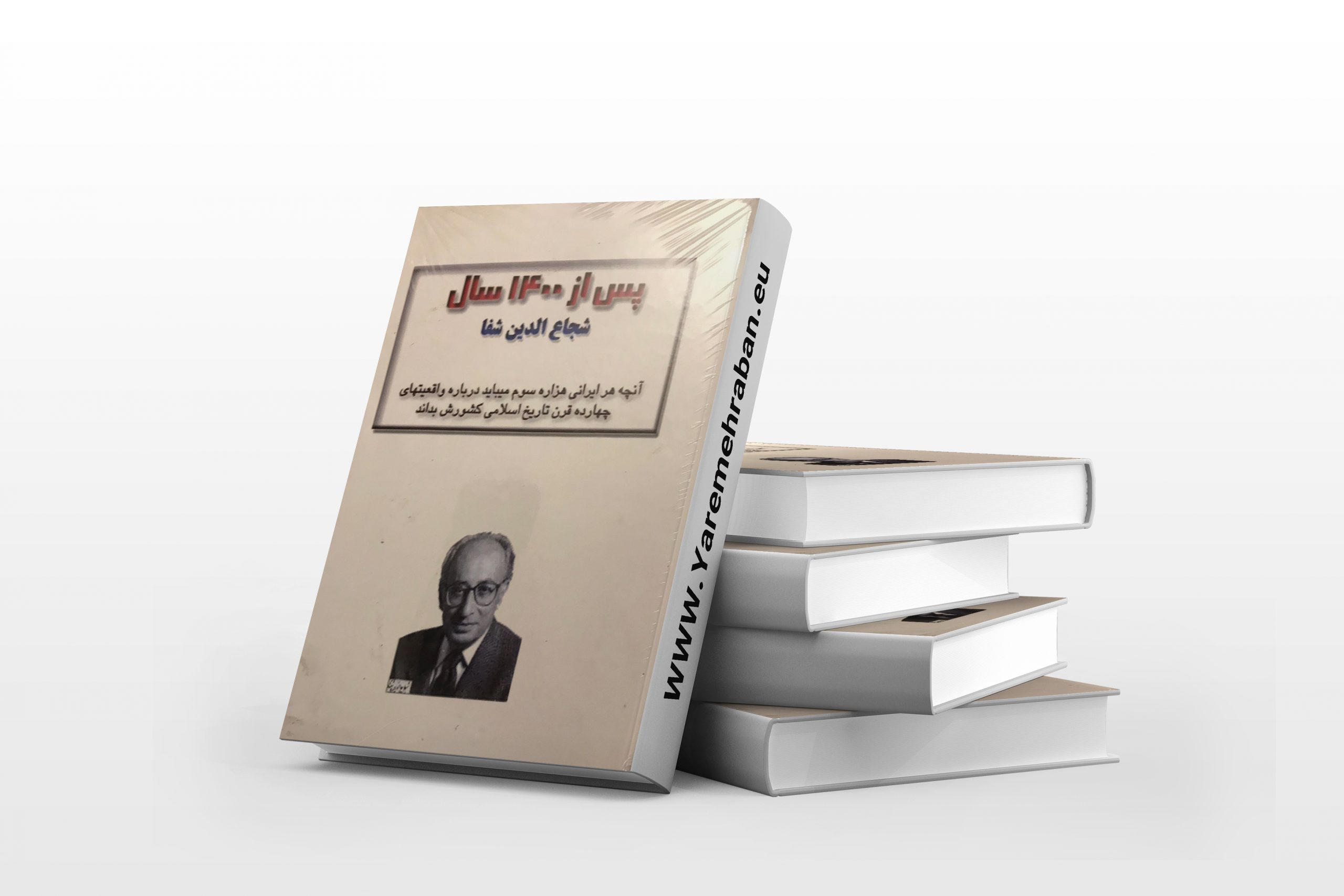

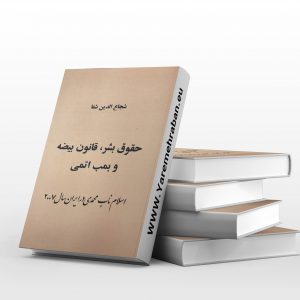

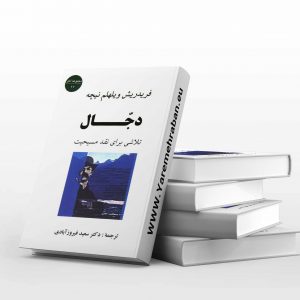
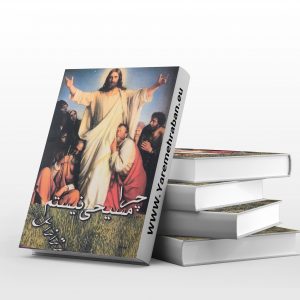

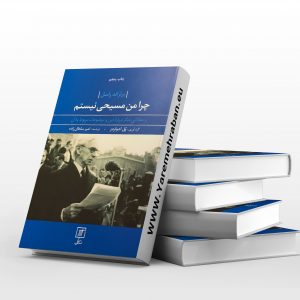


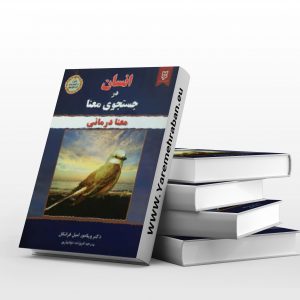

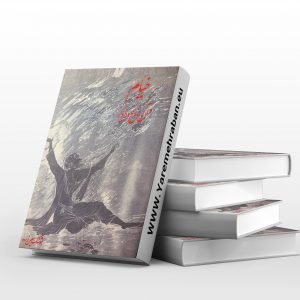
Reviews
There are no reviews yet.